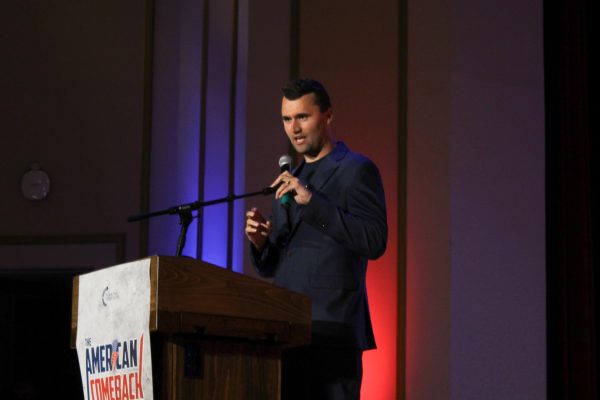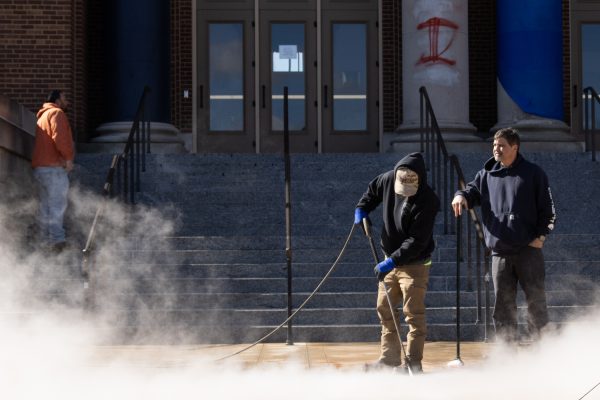Legislative measures safeguard drinking water from contamination
August 24, 2015
Measures granting extra protection of the Mahomet Aquifer, a primary source of drinking water for 14 counties in East-Central Illinois, was signed into law by Gov. Bruce Rauner earlier this month.
House Bill 1326 prohibits the dumping of manufactured gas plant waste, also known as MGP waste, and polychlorinated biphenyls, or PCB’s, in landfills above the Mahomet Aquifer, according to the original synopsis of the bill.
Aquifers act as storehouses for groundwater and are permeable, meaning liquids and gases can pass through, according to National Geographic’s website. When rain or melted snow drains into the ground, aquifers allow water to be used for drinking, agriculture and industrial uses when wells are drilled into them.
The process of manufacturing gas from coal produces MGP waste, which poses an environmental and public health concern because it contains volatile organic compounds and tar acids, among other materials. In addition, PCB’s originate from electrical transformers, plastics and lubricating oils, and are known to cause cancer and bring about adverse health effects.
The possibility of PCB’s spilling into the landfill was made controversial after citizens in DeWitt County posted about the issue on Facebook, attended a local DeWitt hearing and stood together to protect their source of drinking water, said Don Gerard, former mayor of Champaign. He was proud to see citizens and elected officials come together for a cause they believe in.
Get The Daily Illini in your inbox!
The city of Champaign has made considerable efforts to create ordinances and policies that promote a clean and safe environment, Gerard said.
Though the bill originally listed PCB’s in the synopsis, the chemical is currently in the process of being handled between the Mahomet Aquifer Coalition, a coalition that is comprised of 14 local governments in east-central Illinois, and the Clinton Landfill, Inc. Both parties have drafted a consent decree upon a lawsuit that spurred from complaints of citizens in DeWitt County.
“The Mahomet Aquifer serves as Champaign-Urbana’s lifeline for clean, safe water that is used for everything from drinking to commerce,” said state Rep. Carol Ammons, D-103, who helped sponsor the bill to advance onto the Illinois House of Representatives.
The Mahomet Aquifer provides drinking water to approximately 800,000 people per day and uses approximately 53 million gallons for 120 public water systems every year, according to the Illinois Steward.
“It has been an enriching experience to work with legislators and organizations on all sides of the issue to pass a bipartisan measure that helps safeguard our region’s most valuable natural resource from contamination,” Ammons said.
Sen. Scott Bennett, D-52, co-sponsor of HB 1326, said the bill was examined two to three times prior to his chairmanship but never reached approval. What made it different this time around was due to two reasons — the creation of a bipartisan coalition and directly addressing the issues with the Illinois Environmental Protection Agency, he said.
A bipartisan coalition allowed both parties to discuss which districts were affected by contaminations from the aquifer and conversations with the Illinois Environmental Protection Agency led to the immediate solutions that spurred the signing of the bill.
While the bill may be seen as a “major victory” for the east-central Illinois community, Ammons said that her work for environmental protection is not over.
Bennett said the sponsors are being proactive by meeting with engineers and environmental experts to develop future safeguards in order to prevent any future waste from depositing into aquifers. He added,“We’re trying to address the problems before they’re in our lap and not having to react to these problems.”
“We must continue to encourage discussions on how we can better protect our natural resources, such as the Mahomet Aquifer, from pollution in order to ensure they are preserved for future generations to enjoy,” Ammons said.
Tweet: .@BruceRauner signed legislation granting further protection of the Mahomet Aquifer.





